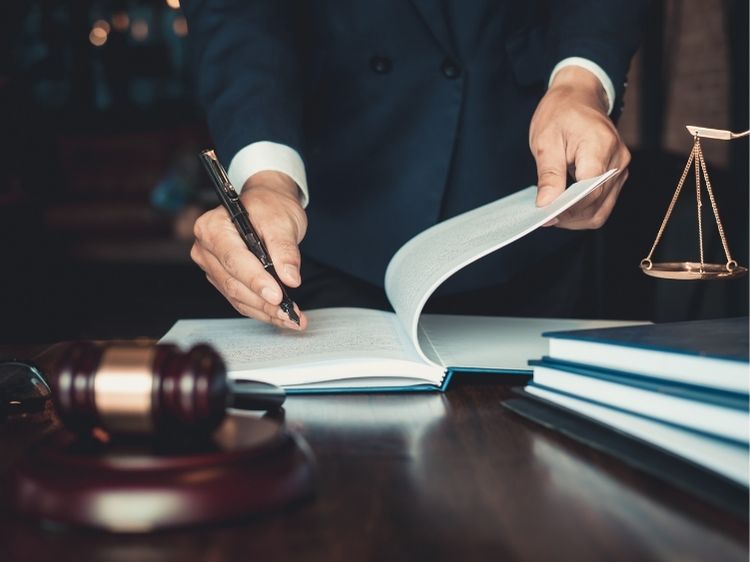Why You Might Need a Liability Attorney Lawyer
Ever found yourself in a sticky situation where someone accuses you of causing harm? Maybe a client slipped on your property, or a customer claimed your product caused an injury. These scenarios can spiral into expensive lawsuits. That’s where a liability attorney lawyer steps in. They’re your legal shield, ensuring your rights are protected and guiding you through complex legal waters.
In this guide, we’ll explore what liability attorneys do, when you need one, and how to choose the best lawyer for your case.
What Does a Liability Attorney Lawyer Do?
A liability attorney lawyer specializes in legal cases involving personal, professional, or product liability. Their job is to represent individuals or businesses accused of causing harm—whether physical, emotional, or financial.
Common Areas of Liability Cases
- Personal Liability
- Slip-and-fall accidents
- Dog bites or other injuries on private property
- Professional Liability
- Medical malpractice claims
- Legal malpractice lawsuits
- Product Liability
- Defective products causing injury
- Failure to warn about potential risks
- Employer Liability
- Workplace accidents
- Harassment or discrimination claims
Liability lawyers defend their clients or help them negotiate settlements, depending on the case’s specifics.
Signs You Need a Liability Attorney Lawyer
Not sure if you need legal help? Here are some telltale signs:
- You’re facing a lawsuit. Whether it’s from a disgruntled customer or an injured employee, lawsuits are serious business.
- Insurance companies are denying your claim. A lawyer can push back and fight for what you deserve.
- You’re unsure of your legal responsibilities. Liability cases can get tricky, especially if multiple parties are involved.
- A significant financial loss is on the line. Protecting your assets is crucial in high-stakes cases.
How to Choose the Right Liability Attorney Lawyer
Picking the right lawyer can make or break your case. Here are a few tips to help you find the best fit:
1. Check Their Specialization
Not all lawyers are created equal. Look for someone who specializes in liability law. They’ll understand the nuances of your case better than a generalist.
2. Ask About Experience
How many cases like yours have they handled? Experience often translates to expertise.
3. Look at Reviews
Client testimonials can provide insight into a lawyer’s track record and professionalism.
4. Evaluate Communication Skills
Your lawyer should be someone who listens to you and explains legal jargon in plain English.
The Legal Process: What to Expect
Once you’ve hired a liability attorney lawyer, here’s what the process might look like:
- Initial Consultation
- Discuss the details of your case.
- Share all relevant documents.
- Investigation
- The lawyer gathers evidence to support your case.
- Interviews with witnesses, collection of photos, and document reviews occur here.
- Negotiation or Mediation
- Many cases settle out of court. Your lawyer will negotiate on your behalf.
- Litigation
- If a settlement isn’t possible, your case goes to trial.
- Your lawyer will present arguments, cross-examine witnesses, and fight for a favorable verdict.
Frequently Asked Questions (FAQs)
1. What’s the difference between a liability lawyer and a general attorney?
Liability lawyers specialize in cases involving personal, professional, or product liability, while general attorneys handle a broader range of legal issues.
2. Can a liability attorney help me avoid a lawsuit?
Yes! They can provide advice on risk management and negotiate settlements before a case escalates to court.
3. How much does a liability attorney lawyer cost?
It depends on the case’s complexity and the lawyer’s experience. Many offer contingency-based fees, meaning they get paid only if you win.
4. How long does a liability case take?
Simple cases may resolve in a few months, while complex litigation could take years.
5. Do I need a lawyer for small claims court?
While you can represent yourself, having a lawyer increases your chances of a favorable outcome, even in small claims cases.
Tips to Protect Yourself from Liability
Prevention is always better than cure. Here’s how you can minimize liability risks:
- Invest in Insurance: Liability insurance can save you from financial ruin.
- Document Everything: Keep detailed records of transactions, contracts, and incidents.
- Be Proactive: Fix hazards on your property and address complaints promptly.
- Understand the Law: Familiarize yourself with local and federal regulations in your industry.
Conclusion
A liability attorney lawyer can be your greatest ally when dealing with legal disputes involving personal, professional, or product liability. Whether you’re facing a lawsuit or trying to avoid one, having the right legal expert by your side makes all the difference.
Remember, choosing the right lawyer is as important as the case itself. Do your research, ask questions, and don’t be afraid to seek help when you need it. Legal issues may be daunting, but with the right support, you can navigate them confidently.




